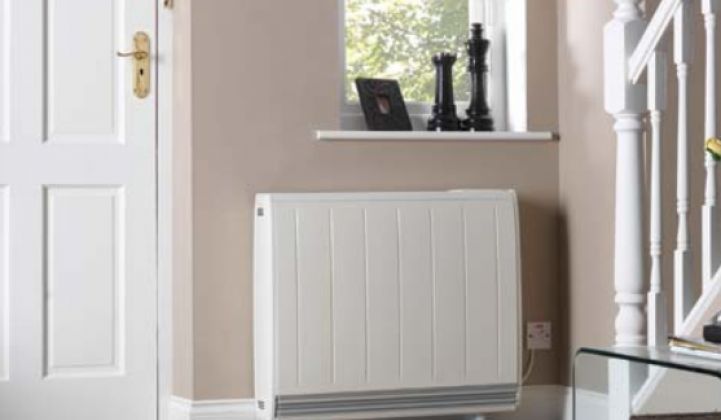Gas is on its way out. This is a straightforward fact. It may be that discoveries of new deposits will allow it to be used for somewhat longer than is currently anticipated. At the end of the day, however, gas is a fossil fuel and hence will eventually run out. The only real question, therefore, is how quickly people should aim to switch to other energy sources.
Gas vs electric
At present, the main contender to gas is electricity. Traditionally, electricity was produced by burning fossil fuels. This meant that, from an environmental perspective, gas was actually the cleaner option.
Now, however, electricity is increasingly being generated from clean sources, especially renewables. The process of changing to clean sources is far from complete but the ball is definitely rolling with a lot of momentum behind it. This means that electricity is far more sustainable than it used to be and becoming more sustainable all the time.
What’s more, a combination of advances in technology and political willpower are making renewable energy both more reliable and more affordable and many household are opting for an electric heater alternative. These changes are essential for its mainstream adoption.
No matter how much people in the UK might support the idea of “going green”, the fact remains that the UK can have very harsh winters. Even spring and autumn can bring severe weather. This means that heating needs to function reliably in all conditions and be priced at a rate the average person can afford.
Gas vs solar power
Despite the jokes about the UK’s weather, the country as a whole does actually get enough sunshine to make solar power a viable option. Just how viable it is depends largely on where you live. In a geographical sense, the south of England gets the most sunshine and from there it’s a case of diminishing returns.
In a practical sense, your ability to use solar panels depends a lot on what kind of property you live in. Firstly, you need the right to install the panels. This means that you either need to own the entirety of the building or have the agreement of co-owners.
Secondly, you need a place where you can actually put them. This is typically on a roof although there are other options such as freestanding ones. Pitched rooves tend to be better than flat rooves (as it’s easier for the sun to hit them). These are standard on houses but not on flats.
Assuming you meet these criteria, however, solar power may be enough to run your home. More likely, it will be a major source of energy for your home, topped up by energy from other sources, for example, air-source heat pumps.
Gas vs wind power
At present, it’s not really viable for private individuals to harness wind power by themselves. The UK is, however, making increasing use of wind farms, particularly offshore ones. This means that in most of the UK, most homes are likely to be using wind power to some extent whether you actively realize it or not.
If you’d like to maximize the amount of renewable energy you use, you could look for an electricity supplier which specializes in energy from renewable sources.
Gas vs water power
The parts of the UK which don’t get a great deal of sun often get a great deal of rain. As a result, they tend to have very fast-flowing rivers which are great for hydropower. Unsurprisingly Scotland leads the way here. It produces almost all of the UK’s hydroelectricity.
As with wind power, it’s currently almost impossible for the average individual to harness water power by themselves. If you want to support it, you need to do so via a suitable energy provider. If you live in Scotland, then you can take it as read that you’re using hydropower already.
If you live outside Scotland, then, again, you can look for providers who specialize in energy from renewable sources.
Gas vs ground-source and air-source heating
As the names suggest, ground-source and air-source heating are essentially two variations of the same idea. Both forms of heating use a pump to draw heat out of a natural passive energy source.
Ground-source heating draws the heat from beneath the ground, hence its more common name of geothermal heating. Air-source heating literally draws heat from the air. Both forms require electricity to work the heat pump. This means that they are only fully renewable if the electricity used also comes from renewable sources. That said, this is increasingly likely.
Currently, ground-source heating is not widely used in the UK. Air-source heating, by contrast, is becoming a lot more widely used here. This is largely due to the government’s renewable heat initiative. Air-source heat pumps will also probably be covered by the RHI’s successor the Clean Heat Grant.
Both forms of heating now work effectively even at below-zero temperatures. This means that, in some cases, they may be the only form of heating you need. In general, however, given the UK’s climate and the fairly high proportion of older properties, both forms of heating are probably likely to be best used in combination with another source.
Gas vs stoves
Traditional wood-fired stoves are now widely viewed as being serious environmental hazards on a par with diesel cars. There are, however, a couple of interesting alternatives namely pellet stoves and mason stoves. These could prove very useful in situations where people are using stoves because they’re genuinely off-grid rather than because they want to look at a “real fire”.
Pellet stoves, as their name suggests, burn pellets. The pellets are made of waste material. Obviously, this has to be combustible. It can, however, come from one or more of a variety of different sources. Common ones include cut grass and sawdust created by industrial processes.
Mason stoves are essentially vastly upgraded versions of traditional wood-burning stoves. They have highly efficient chimney structures which trap heat and hence get the maximum value for the wood they burn.
Both pellet stoves and mason stoves do produce carbon emissions. They are, however, much cleaner than traditional wood stoves (and coal fires). Possibly in the future, someone might invent a mason stove that burns pellets and hence provides the cleanest possible solution for off-grid heating.
Read Dive is a leading technology blog focusing on different domains like Blockchain, AI, Chatbot, Fintech, Health Tech, Software Development and Testing. For guest blogging, please feel free to contact at readdive@gmail.com.





